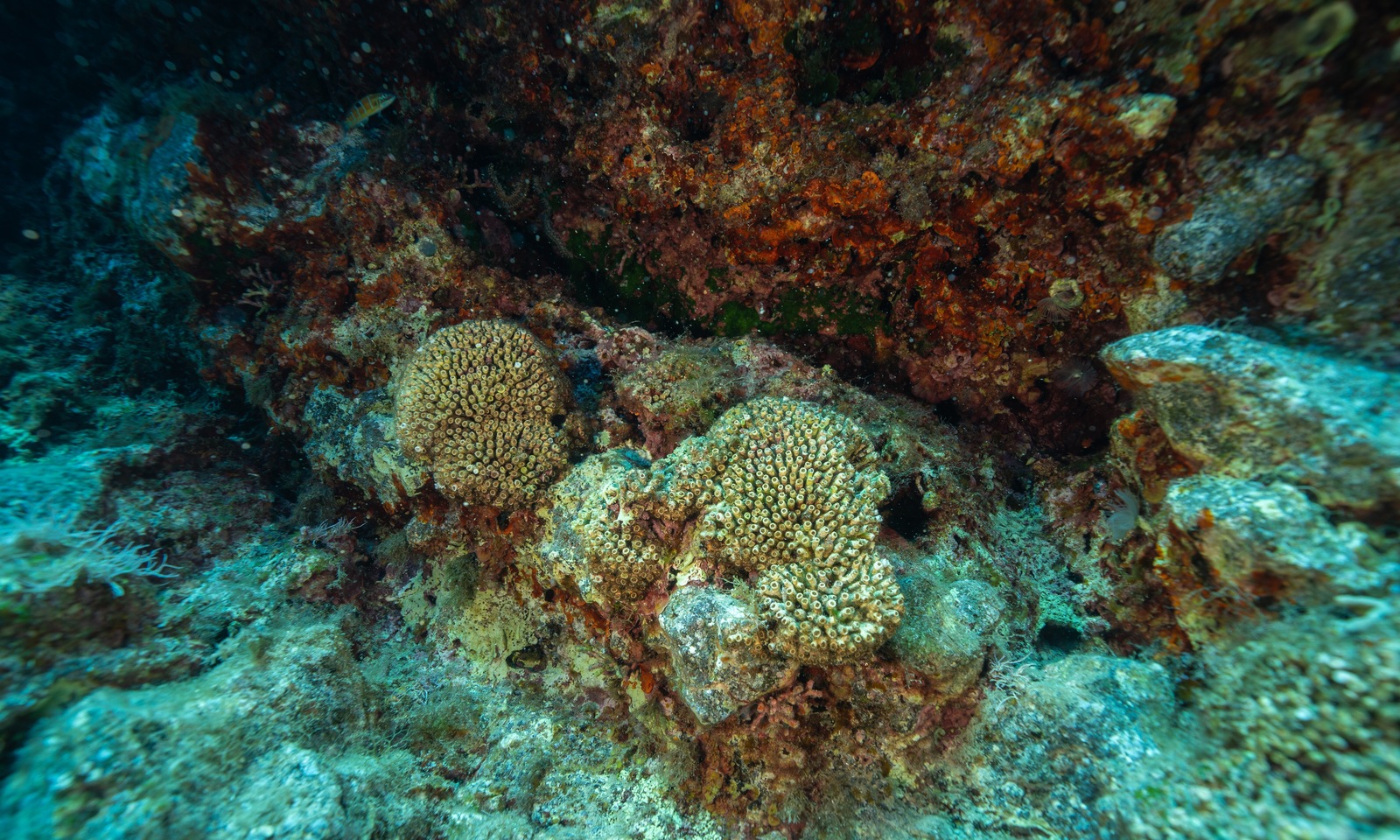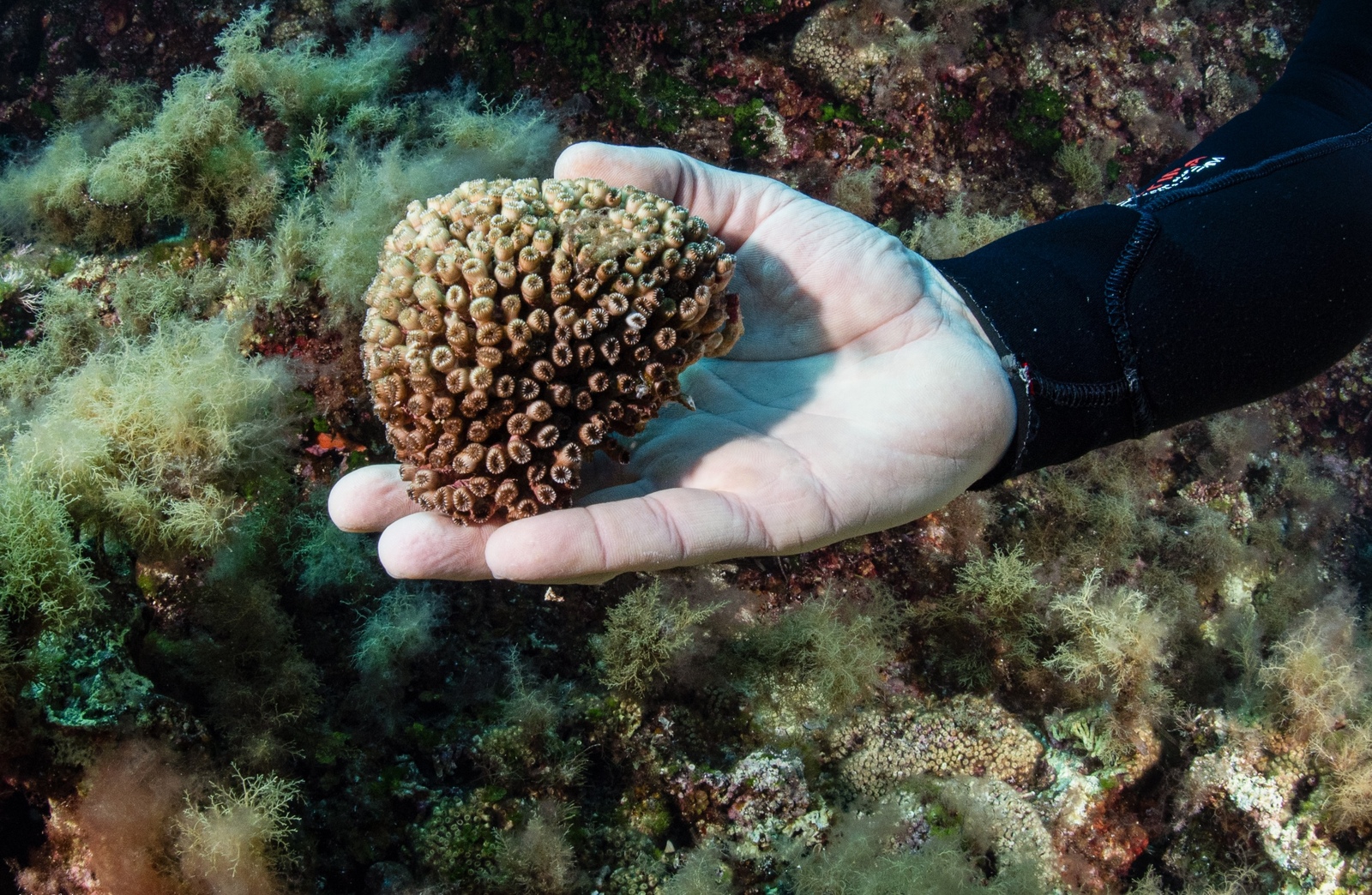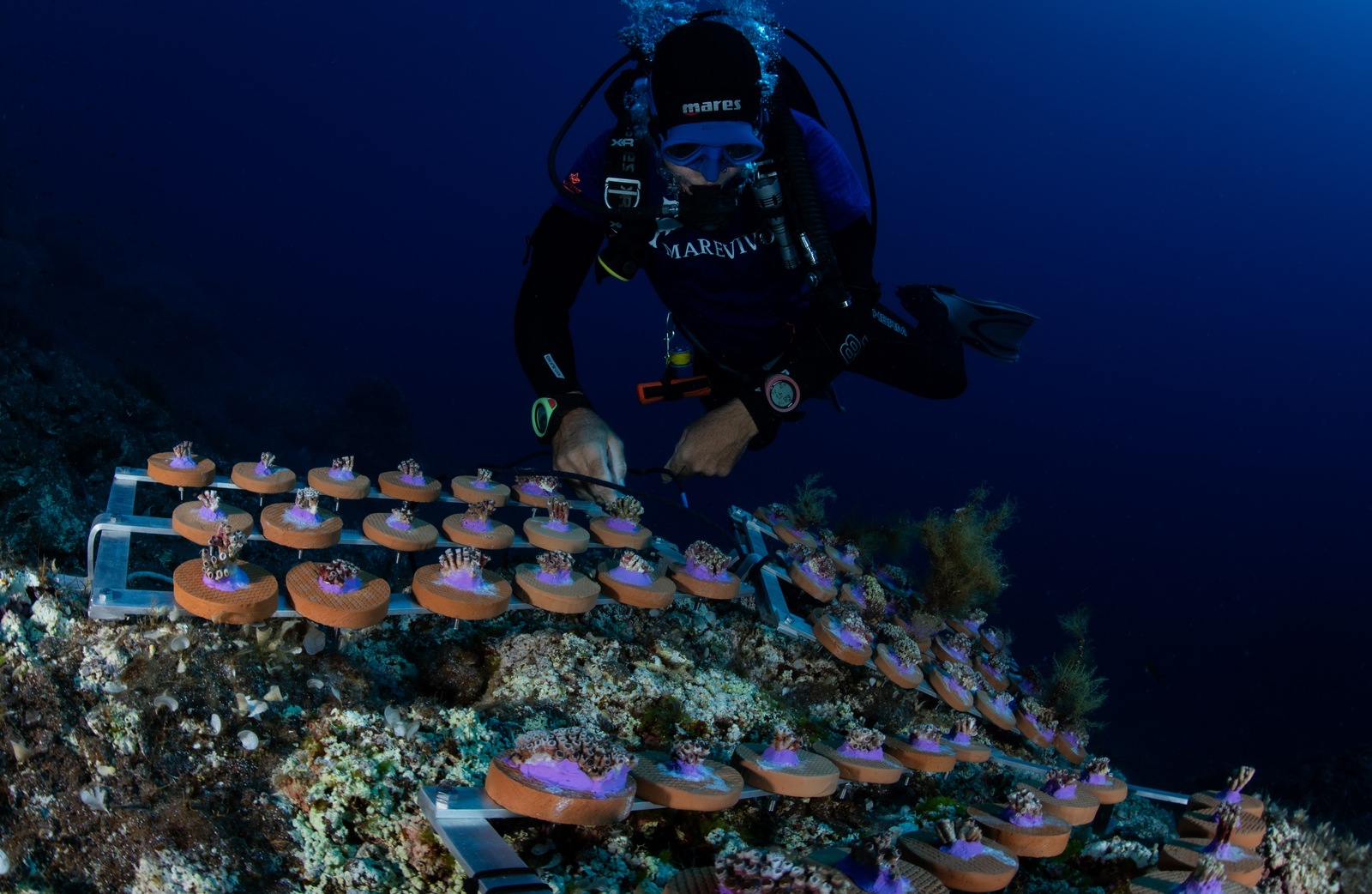 " alt="Supporting Marevivo’s activities: MedCoral Guardians and The Floating Factory">
©All rights reserved Marevivo Onlus
" alt="Supporting Marevivo’s activities: MedCoral Guardians and The Floating Factory">
©All rights reserved Marevivo Onlus
Supporting Marevivo’s activities: MedCoral Guardians and The Floating Factory
Beneficiary: Fondazione Ambientalista Marevivo ETS
Location: Italy, Europe
Grant Cycle: 2024 – 2026
Type of Grant: two-year program support,
Environment & Biodiversity Protection
Website: marevivo.it
Environment & Biodiversity Protection
Marevivo is an environmental foundation that has been protecting the sea and its resources for over 35 years. It works in Italy and abroad to promote the conservation of biodiversity, sustainable development and the strengthening of marine protected areas, while combating pollution and illegal fishing. Marevivo also supports educational initiatives in schools and universities to raise awareness on environmental issues.
The Nando and Elsa Peretti Foundation (NaEPF), always deeply committed to environmental issues and wildlife conservation, has been supporting Marevivo’s activities since 2007, in pursuit of the common objective of achieving a harmonious relationship between humans and nature. Recently the NaEPF has renewed its support to Marevivo by funding two projects: “MedCoral Guardians” and “The Floating Factory”, both in Italy.
 ©All rights reserved Marevivo Onlus
©All rights reserved Marevivo Onlus
MedCoral Guardians. Connecting community to the protected coral Cladocora caespitosa in a pilot project in the Mediterranean Sea
The origin of MedCoral Guardians’ project began with observations by the Mare Nostrum Diving highlighting the regression, bleaching, and necrosis of Cladocora caespitosa, the only reef- building coral endemic of the Mediterranean Sea. The structure of this coral enhances the three- dimensional complexity of the habitat and increases the diversity of associated flora and fauna. The regression of Cladocora caespitosa is primarily driven by mortality events linked to climate change-related heatwaves. Its susceptibility to climate change impacts is further enhanced by local anthropogenic stressors including eutrophication, trawling and increased sedimentation. The high mortality rate of Cladocora caespitosa underscores the urgent need for conservation actions and the development of efficient protocols for future restoration interventions.
Recognizing the urgency of this issue, Marevivo joined forces to develop and structure the project, forming an interdisciplinary consortium comprising the Marine Protected Area, research institutes, local organizations, universities, and sector experts. Marevivo functions to integrate two distinct levels of action: an institutional level, where the species Cladocora caespitosa is protected by the directives and laws cited above, and a local level, where divers from the island of Ustica in Sicily have observed the decline and deteriorating conditions of the coral. The MedCoral Guardians project is a pilot initiative based on the island of Ustica, Italy’s first Marine Protected Area, which was established through the dedicated efforts of the Marevivo Foundation. The initiative aims to develop a scalable model that can be implemented in various insular and non- insular regions across the Mediterranean Sea.
The used approach for restoration is particularly innovative since not only avoids the extraction of entire coral colonies but also demonstrates higher resilience to climate change and heatwaves. By planting fragments rather than whole colonies, the project contributes scientifically valuable data to the field of coral restoration, supporting sustainable management practices and conservation efforts in collaboration with local stakeholders and scientific experts.
The Floating Factory. Protecting the oceans starting from the rivers
Hidden in the hearth of Rome, a few meters away from the city chaos, the new floating structure will be rebuilt in the same area as the previous one, close to the dock on the left bank of the Tiber and to an important natural urban oasis, a significant example of a “ripa”, that is, a consolidated flap of sediments of the river colonized by a particular vegetation typical of the banks of water courses. The oasis, which is currently being restored by the City of Rome is a splendid example of “nature in the city”, where life flourishes with an unsuspected wealth of biodiversity: besides the remarkable avifauna (i.e. kingfishers, herons, egrets, mallards, ducks), the oasis and its shores are occasionally frequented by mammals (foxes, coypu, mice, moles, rats etc). Despite the easy accessibility through quays, bike paths, stairs and river shuttles, Tiber, remains unknown to most citizens and tourists, contained in the walls that make it difficult even visual contact.
Today, its ecological status is compromised by the presence of pollutants such as hydrocarbons and heavy metals, micro-plastics and other dangerous chemical substances for the health of humans and animals and for the environment. In this context, “The Floating Factory” with its Lab on the Tiber can represent a unique observatory to gain knowledge about history, river and sea biodiversity, deepen the study of the fluvial ecosystem and to raise awareness on the importance of biodiversity protection and ecological transition. The new floating structure will be an energetically self-sufficient structure built with innovative eco-sustainable materials and technologies, home of Marevivo’s Foundation office and workstations and comprehensive of a terrace to host co-working spaces and students and the second floor as “The Floating Factory Lab” for activities open to the public. The construction is planned to be finish by December 2025.



